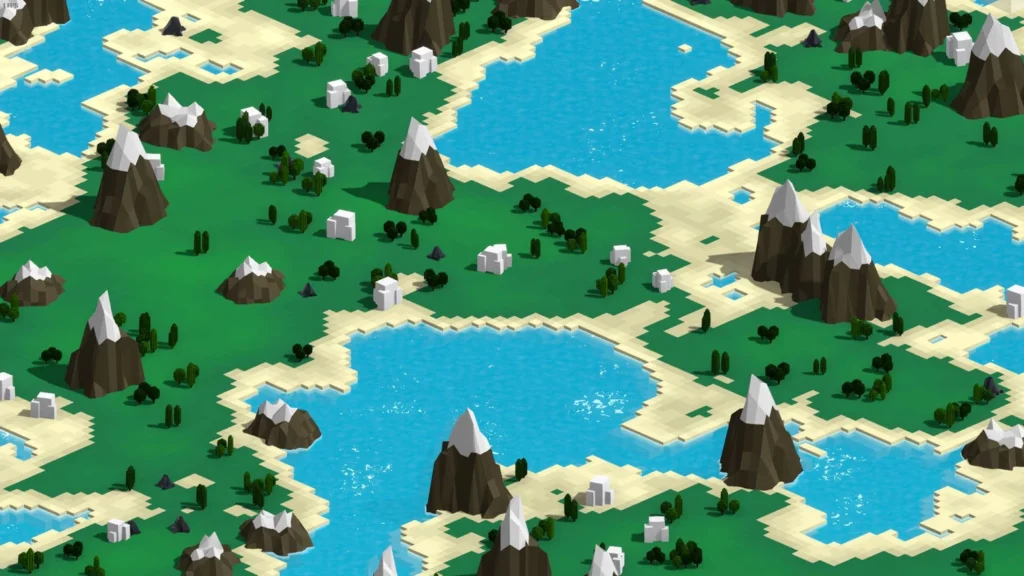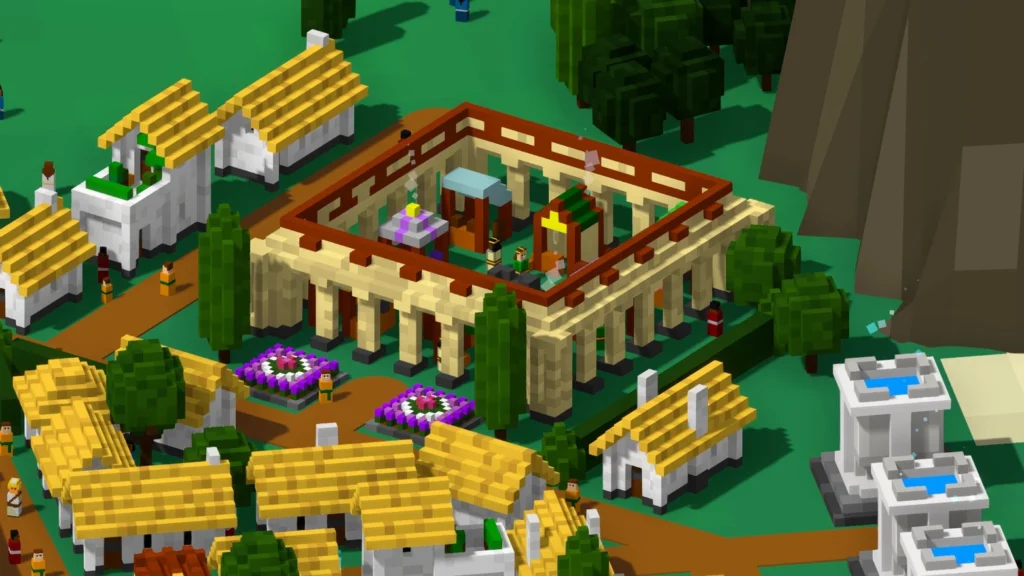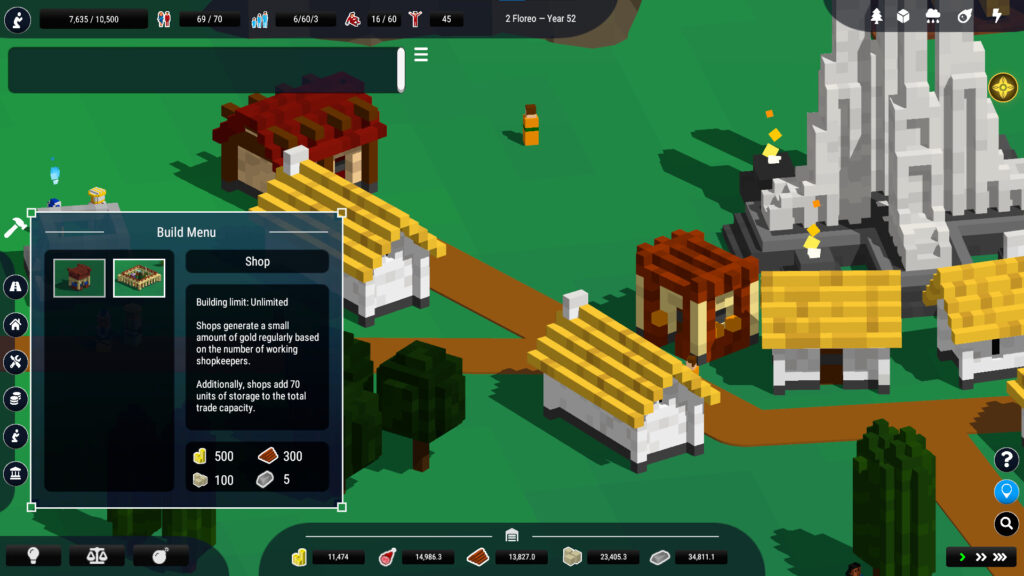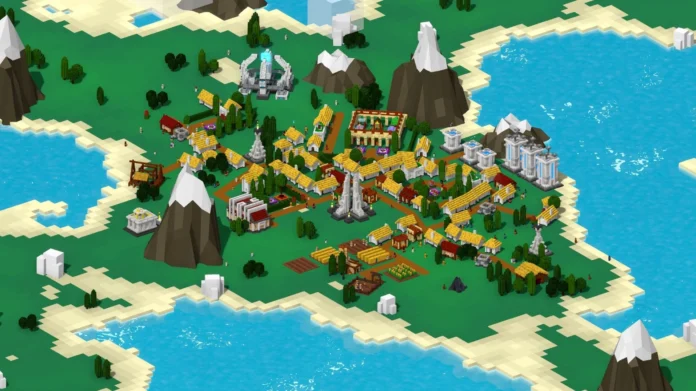Esteban Hernandez, the solo developer behind MKSM Design, has spent almost seven years bringing Creo God Simulator to life. What started as a passion project has grown into a full-fledged god game blending city-building, resource management and player-driven storytelling. “I became a solo developer initially because I wanted to make games, plain and simple,” he says. With no prior programming or design experience, he taught himself everything needed to realize his vision. Working on the game in the evenings after his full-time job and family time, he embraces the creative freedom of solo development. “I have full freedom and control over every aspect of my game.”
Despite the rewards, solo development comes with challenges. “Because it’s just me, and it’s not yet my full-time job, I can only work as fast as my evenings and weekends allow,” he explains. Slow development speed and limited external feedback make it difficult, but he stays motivated by focusing on the bigger picture. “I think the core motivation that pushes me is my desire to complete something beautiful and memorable. If I can pay my bills while doing that, all the better!” Hernandez admits that solo development sometimes takes a toll on his metal health. “I try my best to accept that I may not be the most talented or brilliant game developer in the world, but that I am capable of making something fun and beautiful.”
Why did you become a solo developer?
“Years ago, I became a solo developer initially because I wanted to make games, plain and simple. I had no programming or game design experience, so developing small games was an excellent way for me to learn valuable new skills like programming, while also being a solid artistic outlet. So, I realized solo-development was for me in the early days of Creo several years ago back when Creo wasn’t Creo, but rather, a western-themed city builder named 8-Bit Pueblo. I am currently not doing solo game development fulltime, rather, I do it in the evenings after I get off of work and after I’ve spent time with my kids and put them to bed.”
What are the biggest advantages of working solo?
“I think the biggest advantages of working solo is that I have full freedom and control over every aspect of my game. I can really implement my vision, and I have the flexibility to add in content and mechanics that Creo’s fanbase and others would like to see.”
And the biggest pitfalls?
“I think the biggest pitfalls of solo game development is the slow development speed and the lack of immediate external feedback. Because it’s just me, and it’s not yet my full time job, I can only work as fast as my evenings and weekends allow, which can delay updates beyond what it would take if I had engineering and art help. I also have to leverage my community, friends, and family to give me feedback on my game in the form of testing and suggestions. It would be great to bounce ideas and concepts off of fellow colleagues when building my games.”

What’s your creative process?
“My creative process begins with me creating an overall vision of what I want to see and the world I want to make. Once I have a clear image of the broader vision for my project, I then begin breaking down the overall vision into smaller, more addressable chunks, which I can break down into tasks that I can accomplish in a reasonable amount of time. I also speak with my friends, family, and community extensively to get feedback on lore, game mechanics, design, and more.”
How do you stay motivated through (years of) development?
“It’s hard: anyone who has worked on one project for years will tell you that there are days when you are extremely motivated to get things done and other days when you don’t want to look at your game or project. I have to constantly remind myself of the “why” of what I’m doing. I think the core motivation that pushes me is my desire to complete something beautiful and memorable – and if I can pay my bills while doing that, all the better!”
Will you ever work in a team or is it only solo for you?
“I have nothing against working with a team. In my professional career, I’ve seen incredible works of engineering completed when you have a strong and dynamic team. I don’t really think it’s an ego thing for me, which some might assume about solo game development. Rather, the biggest thing holding me back from bringing additional talent onboard is the money. However, I will say that it is very nice to build and design things with full freedom!”

How did you get the idea for Creo God Simulator?
“The idea for Creo God Simulator really came from a collection of sources of inspiration: the outstanding god games of Bullfrog and Lionhead studios like Populous, the relaxing city-building games like Tropico and Cities Skylines, and the unique storytelling of Rimworld and Dwarf Fortress. I wanted to make a game that took a little bit from each one of these incredible games and sources and add my own little spin to it by creating a unique world—in this case, the world of Creo. I think Creo is unique in the sense that it combines significant freedom in city-building while also providing players with the core gameplay mechanics of a god game: powers, followers, and faith. I’ve been working on Creo for about 6-7 years now.”
What’s the biggest lesson learned from this project?
“I think the biggest lesson I learned was perseverance. I’ve worked on Creo for so long, I’ve certainly had periods where development stopped due to life: school, work, kids, etc. But during those times, I was being eaten away deep down by the desire to persevere and finish what I started: ambitious as it was. I’ve learned that if you start something, you need to finish it.”
The game was free to play during Early Access, will you keep it that way?
“Creo has left Early Access and is now a paid game, costing US $9.99. Several years ago, I was unable to work on Creo as much as I wanted to, and it didn’t feel right to charge folks to buy my Early Access game that wasn’t being actively developed. Because of this, I decided to make Creo free, and let people play my game as I updated it when I could. About one year ago, my personal life positioned itself for me to really focus on Creo, which I did. I felt that Creo was finally at a point where I felt good charging a price for it. Regarding marketing, I’m focusing on using Discord as a great way for a community to form, and I briefly worked with an outstanding PR agency that helped Creo get on the radar of several gaming publications and YouTubers.”

The toll on your mental health can be quite high for solo devs. How do you deal with that?
“Thank you for bringing this up. Solo development did, and still does, take a pretty significant toll on my mental health. When you put so much of yourself into a project, the success or failure of the project can really impact you. I’ve had moments where Creo has helped me feel incredible—like I’ve really made something beautiful and fun—but there are also times when Creo has made me feel inadequate and depressed.”
“I deal with this by accepting: I try my best to accept things as they are. I try my best to accept reviews, both positive and negative, from players, and take any useful and actionable feedback from them. Also, I try my best to accept that sometimes, success takes time, and will not come all at once. I try my best to accept that I may not be the most talented or brilliant game developer in the world, but that I am capable of making something fun and beautiful. I just try my best to accept things as they are and to accept my emotions as they come and go: sadness, joy, disappointment, pride, and more.”
Creo God Simulator is out now on Steam.

